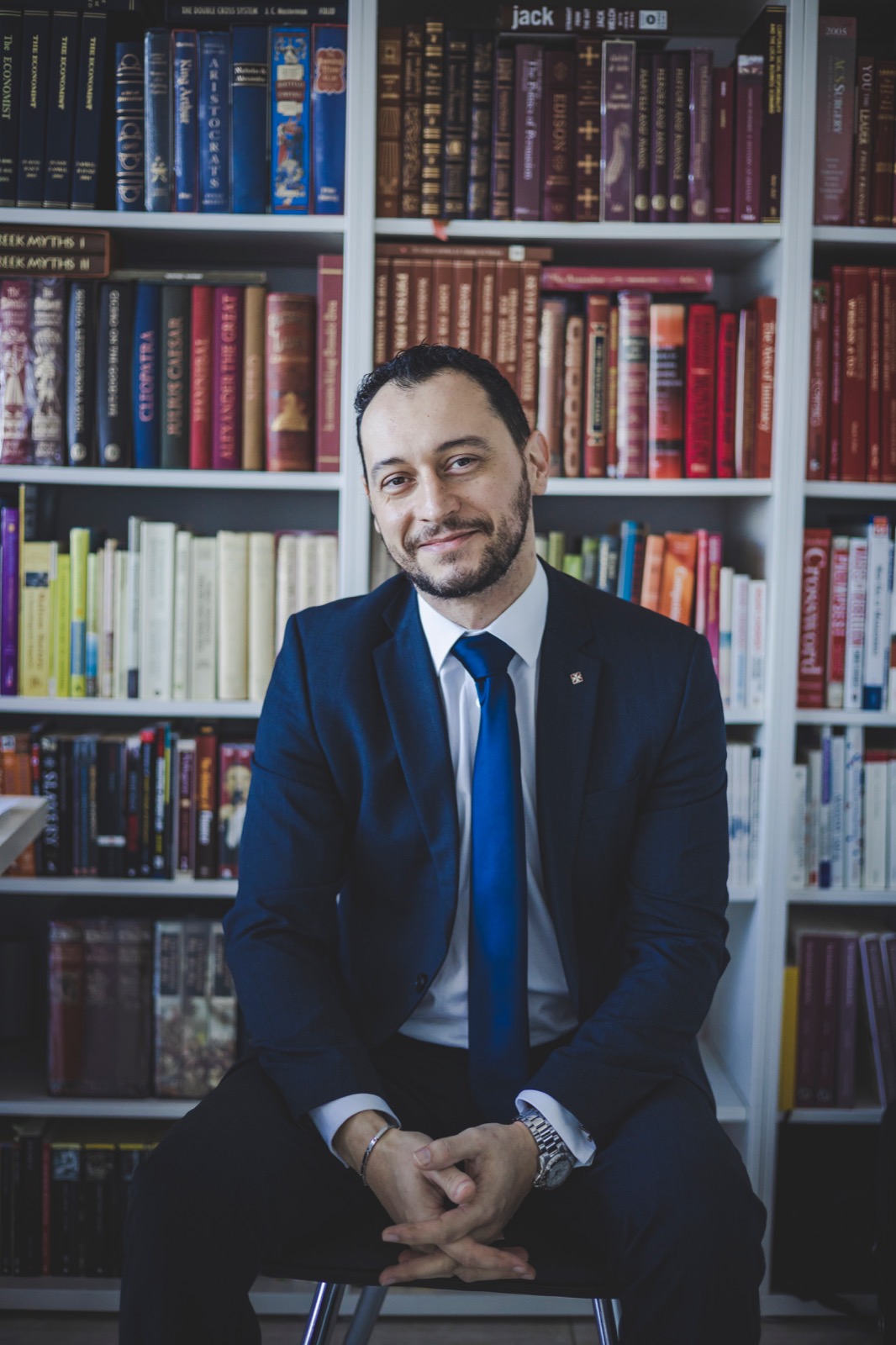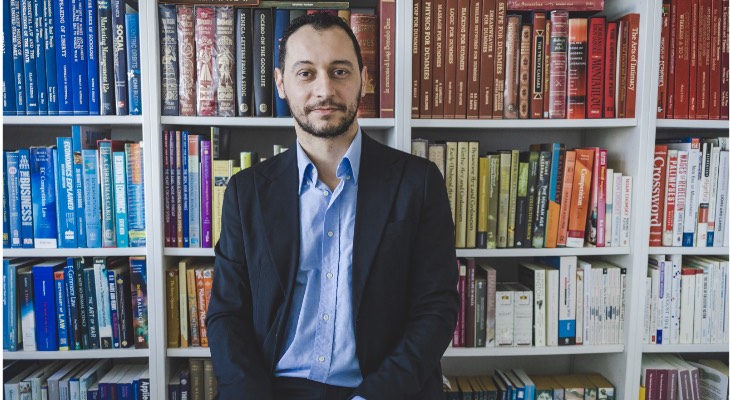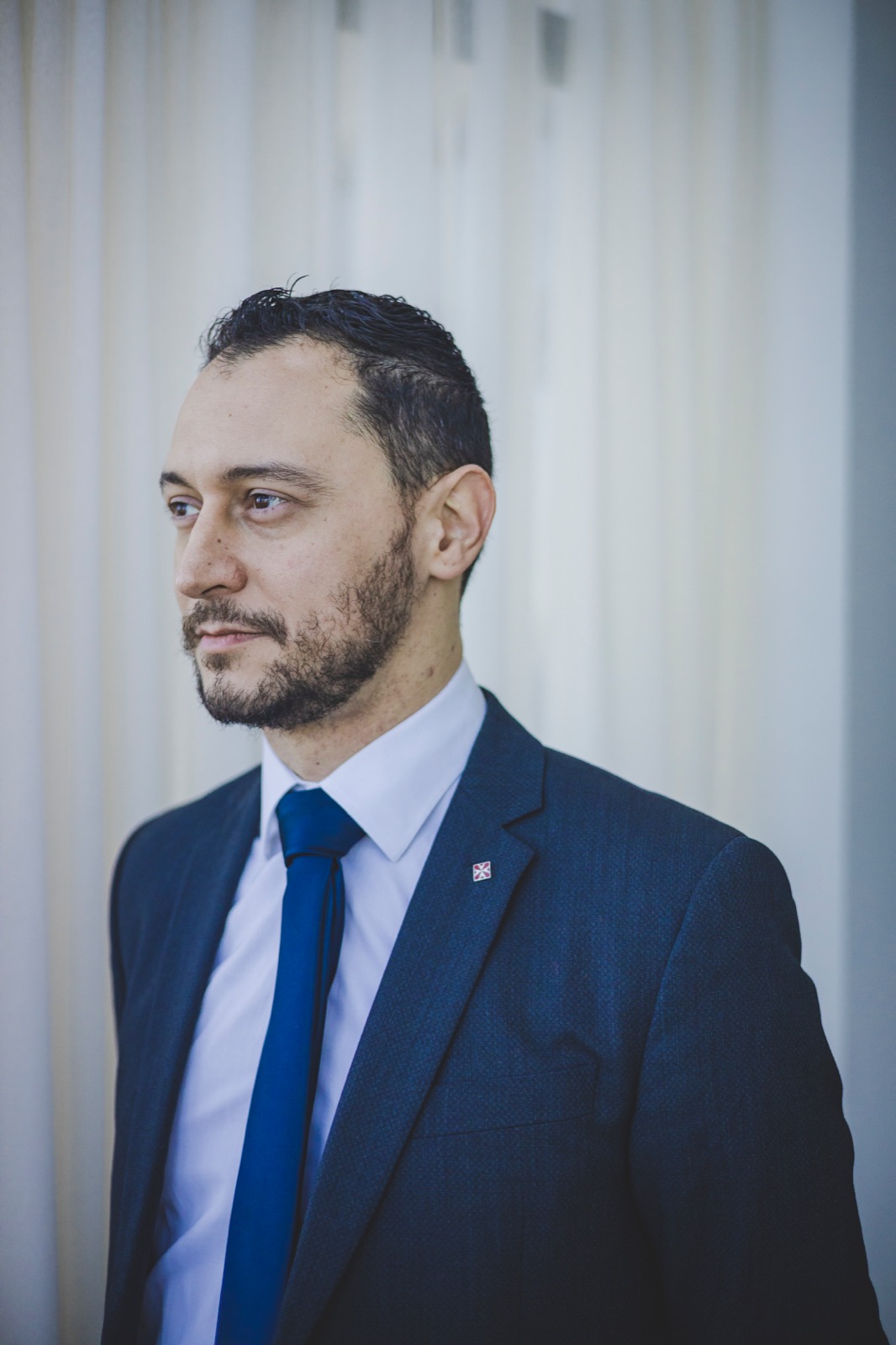Bernard Mallia’s business journey has taken him from summer jobs at large corporations such as The Central Bank of Malta, the MTA and Playmobile before joining Vodafone working as a data cruncher. There, he later landed a key position within the finance department where he oversaw the revenue model for the entire operation.
In 2008 Bernard took the leap to go it alone, launching Equinox after seeing a great opportunity for new funding in the market.
“I did it entirely solo, so I was the CEO and everything else, all the way to accounts clerk,” Bernard says. “I made a conscious decision not to go for external or bank finance because I didn't want to take unnecessary risks. One of my biggest projects in the first year of the company’s life was a government project with a duration of over a year and a half. It was one of those projects where they only paid at the very end, which meant that I had to make ends meet with cash flow.
“After that learning curve, I then had to figure out what to do with becoming cash rich. We went from one extreme end of the problem to the other. Of course, I had learnt a lot from my previous work experiences, and I had made a lot of contacts through them. However, a lot of issues were extremely unique to the company, so I didn’t have the luxury of learning from other people’s mistakes or from literature in books.”
Bernard professes that he’s glad the rollercoaster is over and now that Equinox is at the stage where their cash flow is very stable, they can plan much further ahead. While Equinox was always interested in looking into new areas of investment, their aim is now to consolidate what they have and to grow horizontally as opposed to vertically.
“I'm not getting any younger myself,” Bernard says. “I think that when you reach a certain level of stability and you're happy with it, you don’t feel the need to challenge yourself to get out of that comfort zone. That isn’t to say that if someone had to approach me tomorrow with some interesting opportunity, I would immediately shut it down, but I would mitigate risk way more than I used to.”
In the beginning, Equinox focused exclusively on Government studies with the likes of public procurement projects that required feasibility, economic, and engineering assessments to put together applications for EU funds. This was targeted mostly within the European Development Fund and the European Social Fund. While Equinox also had a few private sector clients, these studies were the bread and butter of the company.

In 2010, Bernard began expanding the business with the company’s first new employees in their DH side, and then a year later they had set up a subsidiary law firm. In 2015, Equinox received their training licence to create Equinox Academy so that they could offer accredited training courses. Then, 2016 brought on the brakes on public procurement as it was no longer making economic sense for the company. From there, they shifted to the IT side of things, inclusive of business intelligence, data warehousing, robotic process automation and artificial intelligence – which is where they are today.
Bernard says of the IT shift, “One of the best decisions we ever made was that of our entry to robotic process automation and data warehousing. This line of business allows us to utilise what we’ve learned over the past five years. While it’s a change from the original landscape in terms of the type of user, there are a lot of striking similarities that might not be evident to someone who is not in those markets.
“For instance, when you're dealing with artificial intelligence, you're dealing with a lot of data number crunching. It’s pretty much the same thing that you deal with when you're producing economic studies. Granted, the user is very different, but even though the modelling that is required is different, the principles which apply are pretty much the same, yet applied in a different context.
Bernard ascertains that if a company has a person or a group of people who are employed solely to input data or to capture data that needs to be entered elsewhere, then they're doing something wrong. Bernard believes that one of the reasons that good firms do not invest as much as they should in automation is because of its up-front cost.
“Once a firm experiences automation and sees what it can do, they always invest in more,” Bernard says. Having said that, not all the processes a business might have are easy to automate so we have to approach with a critical mind and understand what the automation capabilities are.
“For instance, if you've got an accounting department – which most medium sized companies in Malta have – one of the things that we see is the time and effort wasted in the processing of the incoming invoices, which is something that can be fully automated. On the other hand, there are one-off processes that are not standardised. Almost anything can be automated, but the complexity of it might not make business sense. In short, we listen to our clients’ requirements and then assess what makes sense to automate and what doesn’t.”
Equinox offers AI answering services, which is replacing the old-style interactive voice response system whereby callers are asked to dial a number for various services. AI answering involves a machine which answers the call sounding like a human. In a human voice (in the preferred accent), it will ask the callers what they need and then listen to what they are saying, converting the voice into text. It can understand the meaning of that text and it will see whether it can answer those questions automatically or whether it needs to connect the caller to an actual human. The beauty of this technology is that the machine will also be listening to the conversations between the caller and the human to learn from it so that it expands its database of answers.

A set back to this AI automation is that Google hasn’t yet collected all the data that it needs to provide firms with the API for the Maltese language, which is a huge hinderance for large local firms. Bernard believes that it could take another three to four years before a Maltese model will be available. In the meantime, hefty investment must go into collecting data and human intervention to correct the machines when they are misinterpreting the data. “Whoever gets there first will be able to capitalise on it,” Bernard says. “In the meantime, there are a lot of other areas – particularly industrial – which can greatly benefit from automation.”
One potentially costly set back to AI automation is human bias. If a firm is adopting an AI approach whereby they are teaching the machine themselves or where there is a group of people who are teaching the machine, then any biases that those people might have could be reflected in the algorithm itself.
Bernard says, “We know for a fact from both experience and literature that reflects the experience of other firms around the world that if these biases are replicated within the system, it will cost the business much more than would have been budgeted for.
“Nowadays, legislation from the European Commission states that firms must have a human being ethics expert watch everything the machine is doing so that any biases can be stopped in its tracks. Up until five years ago, this wasn’t the case. You would start off with an algorithm that you knew very well and down the line you’d end up in a situation where you had no clue whatsoever what the machine had learned. As a result, you didn't know what sort of associations it was making between the parameters in your data and your algorithm.”
While the principles between one job and the other might be similar or the same, Equinox does not typically offer the same service for clients. Instead, they assess each individual client’s needs so that they can then chart a unique way for each firm, taking them from where they stand today to where they want to go tomorrow.
Equinox’s vertical growth over the years means that its arms reach different sectors, each helping the other. The engineering arm offers engineering design, while the business training arm offers 150 courses. The aforementioned IT arm offers data warehousing, data crunching modelling and reporting, robotic process automation and AI. Finally, the law firm offers legal services. All these areas allow Equinox to offer clients beyond a one size fits all solution for each client. The company’s approach has always been to offer specific tailored services for each client, rather than producing services for the mass market.
The Equinox team has been working remotely since 2013 but the covid pandemic did effect parts of the business both positively and negatively. The Academy was more or less closed off in March 2020 since the courses being offered were not suited for online employment. To compensate, there was an explosion in business from the web development area and data warehousing.

Going forward, Bernard is looking into applying AI to architecture and interior design. Bernard says, “We are not looking to diversify in a big way. There’s always a trade off between specialisation and diversification. The more diversified you are, the more you must manage those specialisations. It’s not wise to overextend, and particularly not in this market today. Apart from the hiccups with the global economy post-COVID pandemic, there’s also climate change coming, which will be a much bigger hit than the covid pandemic in my opinion. Last summer was quite an eye opener for the heat stress on the physical infrastructure of Malta, as well as other countries. When I think about the changes that are coming down the road with climate change, I get very anxious because they will be life changing, life threatening, and will definitely alter business as we know it.”
“Another challenge that we face is the country’s political economic climate. Being grey-listed was a major slap in the face for us and we have had an exodus of clients leaving the island because of it. It really put us with our backs to the wall and there have been areas which we have decided to shut down because of it. It’s been quite a roller coaster ride in terms of the implications and what we have had to deal now. There is so much red tape with the banks now – even just opening a bank account – that it’s scaring off a lot of clients who were looking at Malta and as a base of operations.”
Bernard plans to give it a year to see how the political economic climate fairs before deciding if he will close off the bodies and move the company to another jurisdiction. He establishes that by the end of 2022, he would like to see Equinox consolidating so that further substantial investment can be made into Equinox’s IT arm.
“Informally I have learned that 90,000 people have left the island in the wake of being grey-listed and the pandemic,” Bernard says. “The implications are endless; if you are working in logistics, it means that you're carrying less cargo. If you're into real estate and renting out property it means that you're going to have a harder time renting or selling. People are leaving, so properties are vacated, and we have just had a development boom so now there’s a surplus of empty spaces. A bit of a recession is coming no doubt, but on the upside, recessions can be very good avenues for making good deals if you can keep your liquidity healthy. There’s an opportunity in every situation so let’s just see what happens in the market next.”
